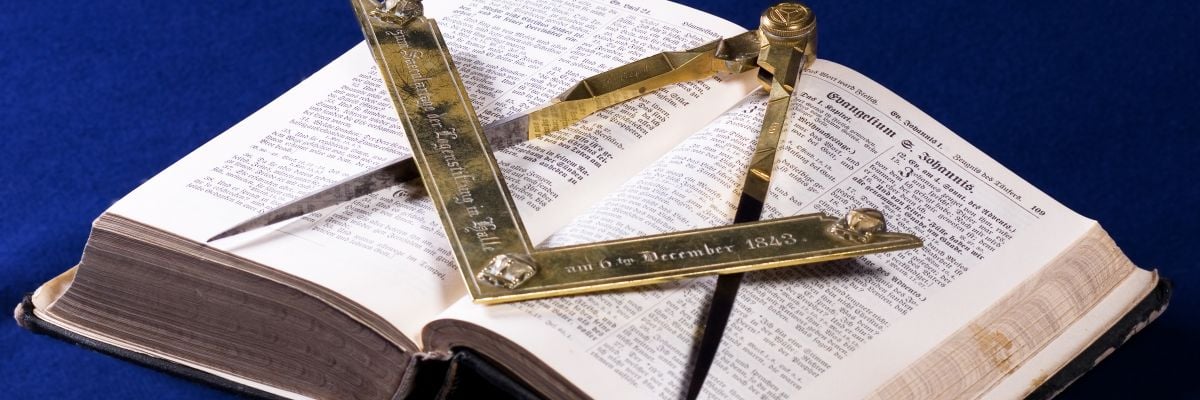
Question:
Answer:
No. Freemasonry is incompatible with the Catholic faith. Freemasonry teaches a naturalistic religion that espouses indifferentism, the position that a person can be equally pleasing to God while remaining in any religion.
Masonry is a parallel religion to Christianity. The New Catholic Encyclopedia states,
Freemasonry displays all the elements of religion, and as such it becomes a rival to the religion of the Gospel. It includes temples and altars, prayers, a moral code, worship, vestments, feast days, the promise of reward or punishment in the afterlife, a hierarchy, and initiation and burial rites.
Masonry is also a secret society. Its initiates subscribe to secret blood oaths that are contrary to Christian morals. The prospective Mason swears that if he ever reveals the secrets of Masonry – secrets which are trivial and already well-known – he wills to be subject to self-mutilation or to gruesome execution. (Most Masons, admittedly, never would dream of carrying out these punishments on themselves or on an errant member).
Historically, one of Masonry’s primary objectives has been the destruction of the Catholic Church; this is especially true of Freemasonry as it has existed in certain European countries. In the United States, Freemasonry is often little more than a social club, but it still espouses a naturalistic religion that contradicts orthodox Christianity. (Those interested in joining a men’s club should consider the Knights of Columbus instead.)
The Church has imposed the penalty of excommunication on Catholics who become Freemasons. The penalty of excommunication for joining the Masonic Lodge was explicit in the 1917 code of canon law (canon 2335), and it is implicit in the 1983 code (canon 1374).
Because the revised code of canon law is not explicit on this point, some drew the mistaken conclusion that the Church’s prohibition of Freemasonry had been dropped. As a result of this confusion, shortly before the 1983 code was promulgated, the Sacred Congregation for the Doctrine of the Faith issued a statement indicating that the penalty was still in force. This statement was dated November 26, 1983 and may be found in Origins 13/27 (Nov. 15, 1983), 450.
The Church has more recently reaffirmed its stand on Freemasonry and membership of Catholics in the Masons. In a November 8, 2023, doctrinal note, the Dicastery for the Doctrine of the Faith reaffirmed the Church’s position in response to a request from a Filipino bishop.
In addition, in February 2024, following a meeting between some Church leaders and Masons in Milan, Italy, one cardinal stated that “an evolution in mutual understanding” had taken place between the Church and the Masons in the last fifty years and called for a “permanent” dialogue between the entities. However, within several days, the president of the Pontifical Academy of Theology left no ambiguity in reaffirming the Church’s longstanding position. See also our related article that elaborates further on Freemasonry’s problematic religious aspects.


